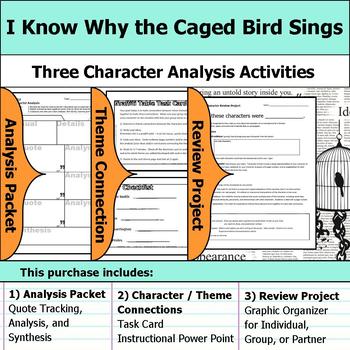


Yet, her few years of almost complete silence-she continued to speak to her brother Bailey-actually served her well Miss Angelou-a former dancer, director and television scriptwriter who is now at work on her second novel-clearly heard, saw, smelled, tasted and seized hold of all the sounds and sights around her. "Just my breath, carrying my words out, might poison people… I had to stop talking." She appeared in court, failed to tell the whole truth and, after her assailant was found dead, concluded that her words could kill. She and her brother were shuttled back and forth between their mother in the North and grandmother in the small town of Stamps, Ark. After Freeman is murdered, she stops speaking, frightened of words."What are you looking at me for? I didn't come to stay…" With these words-from a poem that she stumbled over during a church recital-Maya Angelou opens her autobiography and conveys the diminished sense of herself that pervaded much of her childhood. Sent to live with her mother, Maya endures the trauma of rape by her mother's lover Mr Freeman ("a breaking and entering when even the senses are torn apart"). Living with their grandmother, "Momma", who owns a general merchandise store, and Uncle Willie, they suffer racist incidents both in the store and on the streets – nowhere feels safe. The painful sense of being unwanted haunts her early childhood, for when Maya (then known as Marguerite) is three and her brother Bailey four they are sent to the "musty little town" of segregated Stamps, Arkansas wearing tags on their wrists addressed to "To whom it may concern", dispatched by their parents in California who had decided to end their "calamitous marriage". This evocative first volume of her six books of autobiography, originally published in 1969 (1984 in the UK), vividly depicts Angelou's "tender years" from the ages of three to 16, partly in the American south during the depression-wracked 1930s, while also offering timeless insights into the empowering quality of books. T he caged bird "sings of freedom", writes Maya Angelou in her poem "Caged Bird" – a poignant recurring image throughout her work, as she eloquently explores the struggle to become liberated from the shackles of racism and misogyny.


 0 kommentar(er)
0 kommentar(er)
